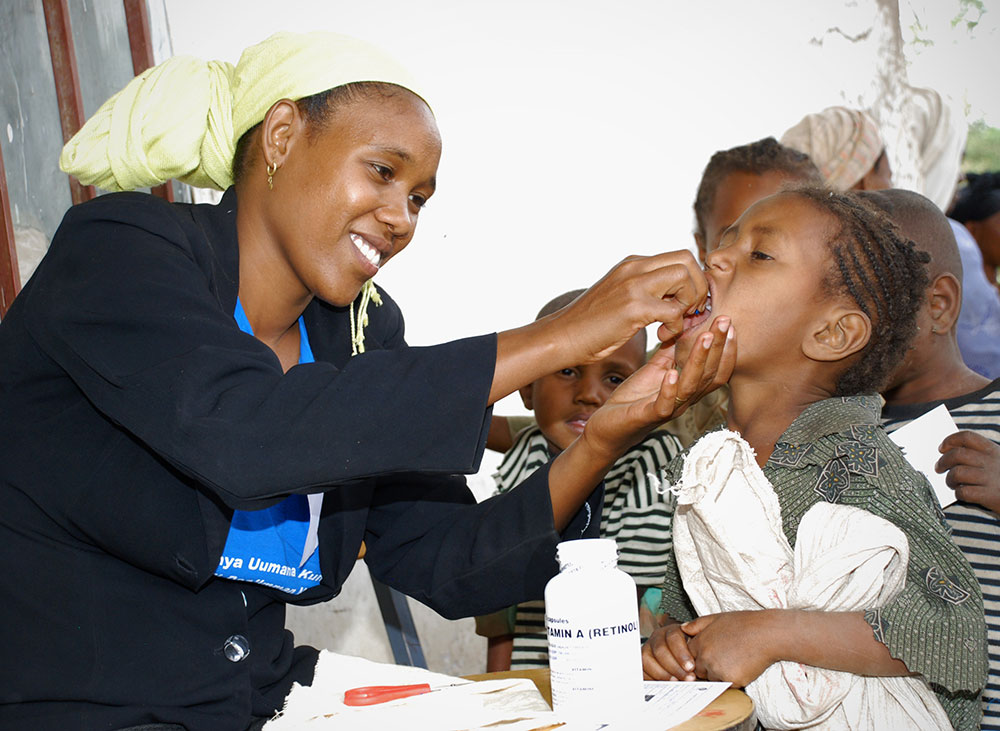Field Stories
Follow the vitamin A to an island in Bangladesh
March 12, 2025
WP_Term Object
(
[term_id] => 118
[name] => Events
[slug] => events
[term_group] => 0
[term_taxonomy_id] => 118
[taxonomy] => news-category
[description] =>
[parent] => 0
[count] => 60
[filter] => raw
)
Global Alliance for Vitamin A reviews future of vitamin A in sub-Saharan Africa
The Global Alliance for Vitamin A (GAVA) discussed the future of vitamin A supplementation for sub-Saharan Africa. MI is a key partner in GAVA and a strong supporter of vitamin A supplementation for child survival.
Posted on April 11, 2016


DAKAR, SENEGAL – The Global Alliance for Vitamin A (GAVA) partners, including UNICEF, Helen Keller International and the Micronutrient Initiative, hosted a three-day meeting to discuss the current status and future of vitamin A supplementation for child survival in sub-Saharan Africa.
The meeting, which took place in Dakar from April 4 to 6, brought together child survival experts as well as government representatives and their partners from more than 20 countries in the region.
Vitamin A deficiency (VAD) is a global public health problem that is particularly problematic in sub-Saharan Africa. VAD puts young children at an increased risk of early death from common childhood infections by impairing their immune systems and it can increase the risk of maternal mortality. VAD is also the leading cause of preventable blindness in children. Until populations can achieve normal vitamin A status through their diets, vitamin A supplementation programs remain a very important child survival intervention.
During the meeting, participants reviewed the current status of vitamin A supplementation (VAS) programs to support child survival efforts in the region, shared best practices and experiences. They also took the opportunity to discuss future plans for VAS within the broader context of child survival and concurrent efforts for VAD reduction.
GAVA partners – comprised of child survival experts – have been working together over a number of years to build and strengthen national support for VAS programs in countries with VAD populations.
MI is committed to supporting vitamin A supplementation programs for young children as one of the most cost-effective ways to improve child survival. MI has been a GAVA partner for a number of years.
Through the Government of Canada, a leading funder of vitamin A for more than 15 years, and in collaboration with partners such as UNICEF, MI has procured and distributed more than 8 billion capsules to improve child survival around the world.